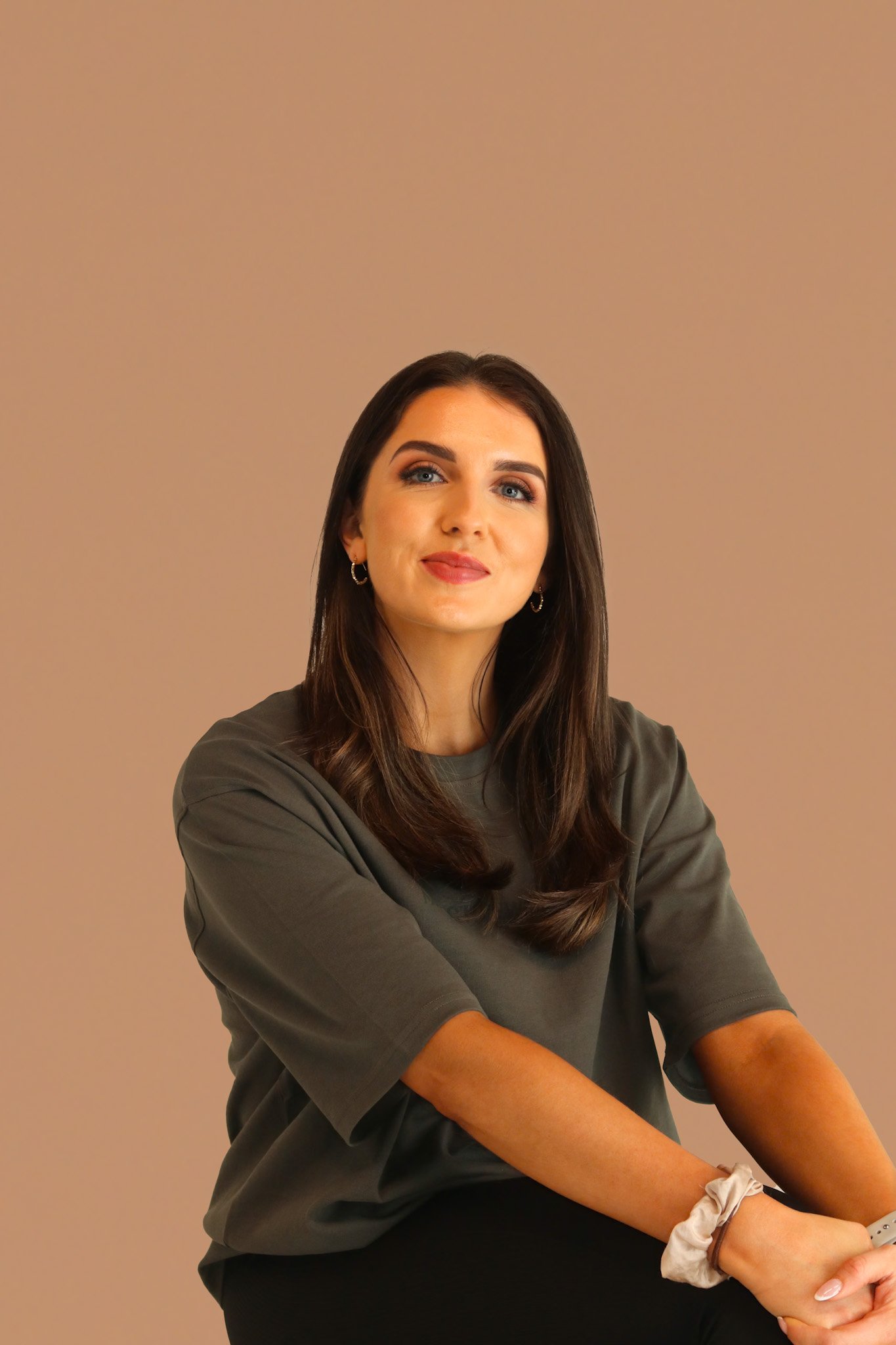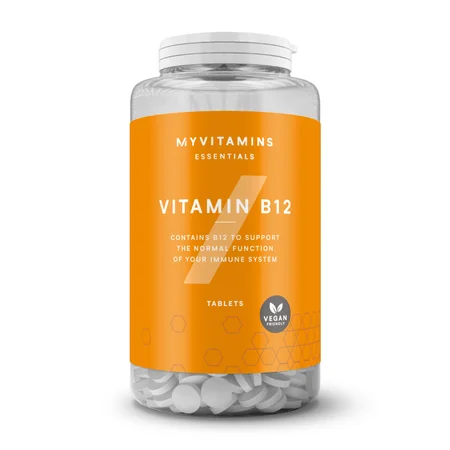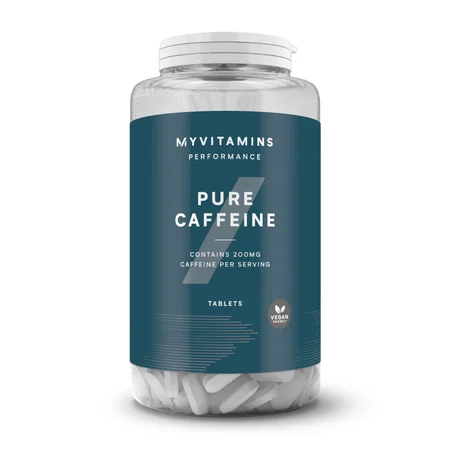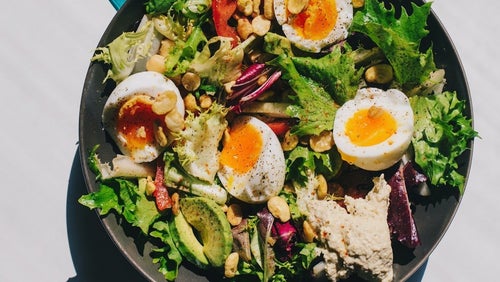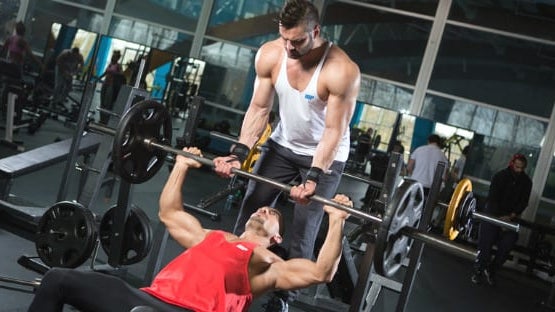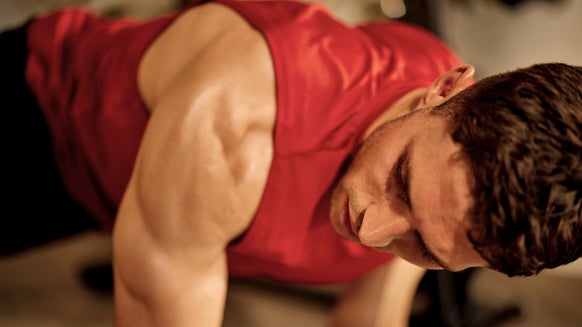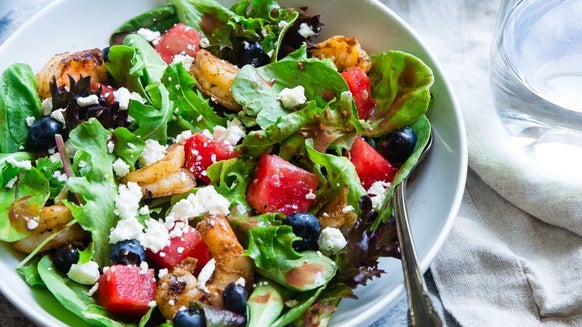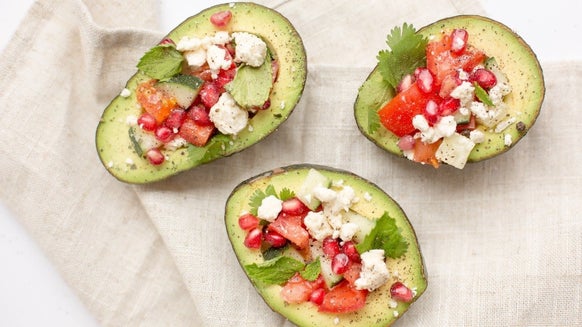Top 10 Supplements For Energy To Fight Tiredness

Fatigue can seriously impact your daily life, especially during the long, dark winter months. And it’s not just down to sleep. There are various factors that can cause tiredness. With that in mind, let’s take a look at 10 of the best supplements for boosting energy.
- What causes tiredness and fatigue?
- 10 supplements to boost your energy
- FAQs about vitamins for tiredness
What causes tiredness and fatigue?
Sleep isn’t the only thing that affects energy levels. Diet, stress, exercise (whether too much or not enough) can all be behind fatigue.
Food’s main function is to provide energy. So if you’re not eating properly, it can impact your energy levels.
On a deeper level, specific vitamins and minerals play a direct role in some bodily processes, like enzyme production and nutrient absorption. A lack of energy is often a telltale symptom of a deficiency.
If you’re suffering from regular tiredness, take a close look at your diet. It might be that one of these fatigue-fighting micronutrients could give you the boost you need.
10 supplements to boost your energy
1. Vitamin B12
Vitamin B12, also known as cobalamin, is crucial for energy levels.
The body uses it to produce healthy red blood cells, without which it could not transport oxygen around the body.
It also supports the metabolism of fats, proteins and carbohydrates, helping to release the energy from these macronutrients.
As it is mostly found in meat, fish, milk and eggs, vegetarians, vegans and followers of predominantly plant-based diets are at the highest risk of deficiency.
2. Iron
Iron is a mineral important for the production of haemoglobin, the part of the red blood cell that carries oxygen and removes carbon dioxide. Like B12, deficiencies can cause anaemia, which is the most-common nutritional deficiency worldwide.1
There are two types of iron: haem and non-haem. Haem iron is found in red meat and other animal products, and is the most bioavailable source of iron, meaning the body can absorb it easily.
Non-haem iron can be found in dark leafy greens like spinach, kale and broccoli, and is less well-absorbed by the body. Because of this, followers of plant-based diets are at higher risk of deficiency.
Menstruating women are also at risk of iron deficiency due to monthly blood loss, explaining why their recommended intake is higher than men’s.
Iron supplements can help with fatigue in some cases but should be discussed with a healthcare professional due to potential digestive issues.
3. Vitamin C
Vitamin C, also known as ascorbic acid, is an antioxidant. It can be found in many widely consumed foods, but is quite unstable, meaning that it can be lost during the cooking process.
Vitamin C aids the absorption of iron, which can reduce the risk of iron-deficiency anaemia and associated symptoms like weakness and fatigue. It is also required to produce certain enzymes that support energy-yielding metabolism.2
Because it is water soluble, excess amounts of vitamin C are excreted, making it safe for supplementation.
4. Folic Acid
Folate is the natural form of vitamin B9 found in foods like green vegetables and liver, while folic acid is the synthetic form found in supplements and often added to commonly consumed foods like breakfast cereals and flour.
Folate is required for DNA creation and nervous system development, so is an especially important vitamin when trying to conceive and during the early weeks of pregnancy.3,4
Folate also contributes to red blood cell production and cell energy, so a lack of it can lead to feelings of fatigue.
5. Magnesium
Magnesium is a mineral involved in cell formation, nerve function and energy production. It also supports oxygen uptake in the muscles.
Low magnesium is linked to low energy and fatigue, so supplementation can have benefits for workout performance as well as overall energy levels.5-7
6. Caffeine
Well known for its ability to improve alertness and energy levels, caffeine is a popular supplement to take before exercise. And after exercise, it may reduce DOMs by helping to diminish the sensation of pain.8
The recommended intake of caffeine pre-workout is 3-6mg per kg of body weight at least 30 minutes before a session. Responses vary from person to person, so you may need to adjust the timing and dosage.
7. Ginseng
Ginseng is a nootropic herb that has been used in traditional medicine for many years.
Nowadays, many supplements contain it for its potential fatigue-reducing benefits. You can take it in capsule form, and it’s also found in many herbal teas.
8. Creatine
Creatine is a naturally occurring chemical that boosts muscle energy levels. Because of this, it is one of the most widely used sports supplements, especially for athletes competing in sports that require explosive movements, like sprinting and weightlifting.
But creatine’s benefits may go beyond that. Studies have shown that it may also improve cognitive function, and has benefits for exercise recovery, as it can reduce muscle damage and encourage greater glycogen replacement that carbohydrates alone.10-13
Creatine is present in meat and fish, but not in high enough quantities to have a notable effect. So although vegetarians and vegans may have slightly lower baselines levels of creatine, supplementation could be useful for anyone wishing to experience creatine’s benefits.14
9. Green Tea
Consumed daily by millions of people across the world, green tea is beneficial for fatigue thanks to the presence of caffeine, theobromine and theophylline.
It also contains the amino acid L-theanine, which is thought to improve brain function and metabolism, in addition to having antioxidant effects.15
Concentrated forms of green tea (like matcha) may have even more benefits for energy than green tea in its traditional form.
10. Coenzyme Q10
Coenzyme Q10, or CoQ10 for short, is essential for cellular energy production. It’s found in all the body’s cells, but in higher concentrations in the brain, heart, and kidneys.
CoQ10 supplementation may become increasingly important with age as the body’s levels naturally decrease.
FAQs about vitamins for tiredness
Which vitamin gives the most energy?
B vitamins play a key role in energy production, but no single vitamin provides energy by itself. Energy, measured in calories, comes from protein, fats and carbohydrates. It’ important that you consume enough calories to support overall energy levels.
What vitamins are you lacking if you are tired all the time?
Various nutrient deficiencies and other underlying conditions can be behind fatigue. Blood tests are a good way of investigating any potential deficiencies, so speak to your healthcare provider if you think you are lacking any essential nutrients in your diet.
Is it good to take B12 every day?
It’s recommended that vegans take vitamin B12 daily as they are at risk of deficiency. If you eat meat and dairy regularly, you should be getting enough B12 from your diet. B vitamins are water soluble, meaning that excess is simply excreted, so it’s safe to top up your diet with supplements.
Will multivitamins help with tiredness?
Multivitamins may help energy levels if they provide adequate micronutrients and no other factors (like sleep or underlying illness) are contributing to tiredness.
How can I boost my energy naturally?
Your overall lifestyle will play a role in your energy levels. A busy, fast-paced lifestyle can make it difficult to look after yourself properly, with enough rest, exercise and a good diet. Find out more about potentially energy-boosting foods here and exercises here.
Take home message
Supplements should complement a balanced diet and lifestyle, and are not a replacement for taking care of yourself by getting enough sleep, eating well and exercising regularly.
If fatigue is really taking it out of you, and you have tried various lifestyle changes, consider taking one of these energy-supporting supplements. And if you think you may be deficient in any nutrients, speak to a medical professional for some advice.
READ THESE NEXT:
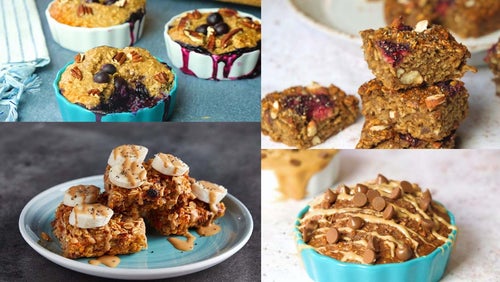
10 Breakfast Oat Recipes To Start Your Day Right
These aren't any ordinary oats...
